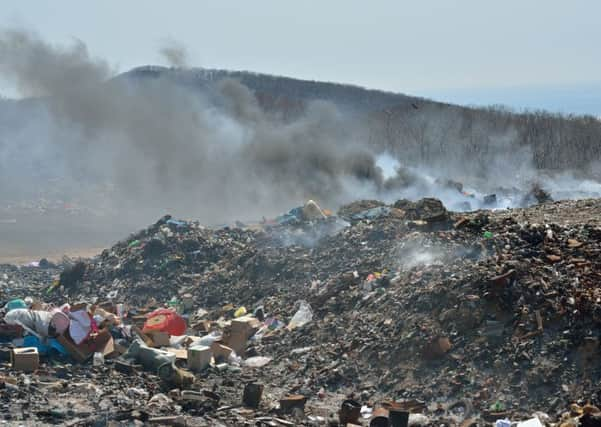Dunbar landfill blaze sparks drive to educate public on battery disposal


The Scottish Fire and Rescue Service (SFRS) deployed multiple appliances, and more than 40 crew, to tackle the smouldering waste.
Landfill fires – which often appear to be a smoky pall hanging over the scene instead of dramatic flames snaking skyward – are notoriously difficult to quell.
Advertisement
Hide AdAdvertisement
Hide AdAnd when the contents of a landfill site are taken into consideration, the environmental damage can be significant.
The Dunbar fire, in January, took 40 hours to extinguish and is now being directly linked to the disposal of lithium-ion batteries.
In an attempt to prevent a repeat of the incident at Dunbar – which is responsible for all of Edinburgh’s waste – site operator Viridor and the SFRA are to launch an education programme to encourage more thoughtful disposal of batteries.
The 300-tonne waste blaze at Viridor’s site was not an isolated incident. More than a fifth of all fires reported to the Environmental Services Association last year were caused by lithium-ion batteries – a 5 per cent increase from the year before.
The batteries can be found in everything from old smartphones to electric toothbrushes and e-cigarettes and tomorrow, Viridor and the SFRS will demonstrate the dangers they pose and how quickly these fires can start.
There are no waste recycling centres in the UK for lithium-ion batteries, most of which are shipped out of the country to Belgium, site of the nearest reprocessing ploant.
Batteries go through two processes, to recover valuable cobalt, and the remaining lithium is used as construction material.
Every day, Viridor takes what British homes and businesses throw away and transforms it into essential quality materials, resources and energy for customers across the UK and globally.
Advertisement
Hide AdAdvertisement
Hide AdIt works in partnership with more than 150 local authorities including 96 per cent of Scottish councils. It also supports public bodies including NHS Scotland, National Museums of Scotland, Scottish universities and colleges and supports Scotland’s leading businesses including Scottish Power, RBS, BAE Systems and Coca Cola Enterprises.
The company is investing £1.8bn in vital low carbon infrastructure and has the UK’s largest network of 327 advanced recycling, energy recovery and landfill diversion facilities.
In addition to its £100m Scottish network of recycling-led technologies, the company has announced £357m of Scottish investment in the last twenty-four months including:
£177.4m Energy Recovery Facility (ERF), Oxwellmains, East Lothian
£154m Glasgow Recycling & Renewable Energy Centre £25m UK’s most advanced Glass Recycling Facility, Lanarkshire
£300,000 flat-screen TV recycling line at its £23m E-Waste Recycling Hub, Perth
£180,000 Dry mixed recycling upgrade at its £11m Materials Recycling Facility, Bargeddie.